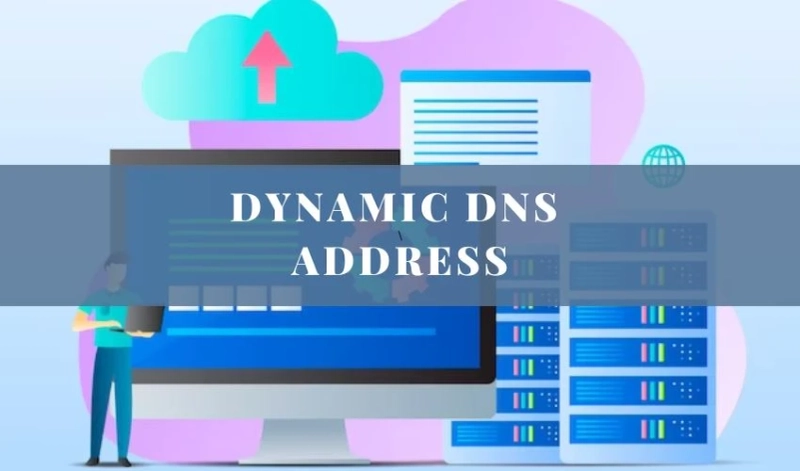Dynamic DNS Address-evolving landscape of the internet, maintaining a stable connection to your network resources is crucial. Dynamic DNS (Domain Name System) emerges as a powerful solution to the challenge of keeping your online presence accessible and reliable. In this blog post, we’ll delve into the world of Dynamic DNS, exploring its significance, functionality, and the myriad of benefits it offers to individuals and businesses alike.
Understanding Dynamic DNS:
At its core, Dynamic DNS is a technology that enables the automatic updating of DNS records, associating domain names with changing IP addresses. In traditional setups, a static IP address is assigned to a device, ensuring a consistent link between the device and its domain name. However, in dynamic environments where IP addresses frequently change, maintaining this connection becomes challenging.
Dynamic DNS steps in to bridge this gap by providing a dynamic hostname that automatically updates as the IP address changes. This allows users to access their devices, servers, or cameras using a fixed domain name, irrespective of the underlying IP address fluctuations.
Key Components of Dynamic DNS:
Client Software:
Dynamic DNS relies on client software installed on the user’s device. This software monitors the device’s IP address changes and communicates them to the Dynamic DNS service provider.
Dynamic DNS Service Provider:
Users typically subscribe to a Dynamic DNS service provider, which offers the infrastructure to manage dynamic hostname updates. Famous providers include DynDNS, No-IP, and DuckDNS.
Router Integration:
Many modern routers come equipped with built-in Dynamic DNS support. This allows users to configure and manage Dynamic DNS settings directly from their router, streamlining the process.
Benefits of Dynamic DNS:
Remote Access:
Dynamic DNS is a game-changer for individuals and businesses that require remote access to their network resources. Whether it’s accessing a home security camera or connecting to a company server, Dynamic DNS ensures a consistent and reliable link.
Host Web Services:
Hosting websites, gaming servers, or any online service becomes more accessible with Dynamic DNS. Users can use a custom domain name, even if their internet service provider assigns dynamic IP addresses.
Security and Surveillance:
For those leveraging IP cameras and surveillance systems, Dynamic DNS provides a means to monitor and manage these systems remotely. This is invaluable for home security or business surveillance, allowing users to stay connected regardless of their location.
Email and File Servers:
Dynamic DNS facilitates the hosting of email and file servers, enabling users to access their data securely from anywhere. This is particularly useful for businesses with remote teams or individuals who want to maintain control over their communication platforms.
Challenges and Considerations:
Update Frequency:
The effectiveness of Dynamic DNS is contingent on how quickly it can update IP address changes. Some services may experience delays in propagating updates, potentially impacting the accessibility of network resources.
Security Implications:
While Dynamic DNS enhances accessibility, it’s crucial to implement robust security measures. Open ports and remote access should be secured with strong passwords and, when possible, additional encryption methods.
Service Reliability:
Users should choose reputable Dynamic DNS service providers to ensure reliability. Frequent downtime or service interruptions can undermine the purpose of having a dynamic hostname.
Conclusion:
Dynamic DNS emerges as a fundamental tool in the arsenal of individuals and businesses navigating the dynamic landscape of the internet. By seamlessly adapting to changing IP addresses, it empowers users to maintain a stable online presence, whether for remote access, hosting services, or enhancing security measures. As technology continues to advance, the role of Dynamic DNS is set to become even more prominent, providing a reliable link between users and their digital assets in our ever-connected world.



